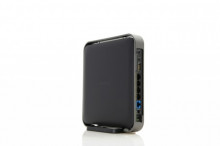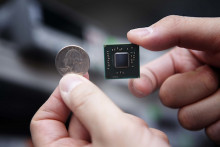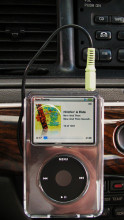Researchers hit 3Gbit/s in the Terahertz band
JAPANESE BOFFINS have demonstrated 3Gbit/s WiFi data transmission at 542GHz, part of what is called the Terahertz band.
Researchers have said the so-called Terahertz band, which ranges from 300GHz to just under 3THz, will eventually allow for transfers up to 100Gbit/s, a figure that is significantly higher than the interconnects used in supercomputer clusters. However Tokyo Institute of Technology researchers showed a slightly more modest 3Gbit/s transfer rate at 542GHz, though that was still enough to set a new record in the Terahertz frequency band.













































































